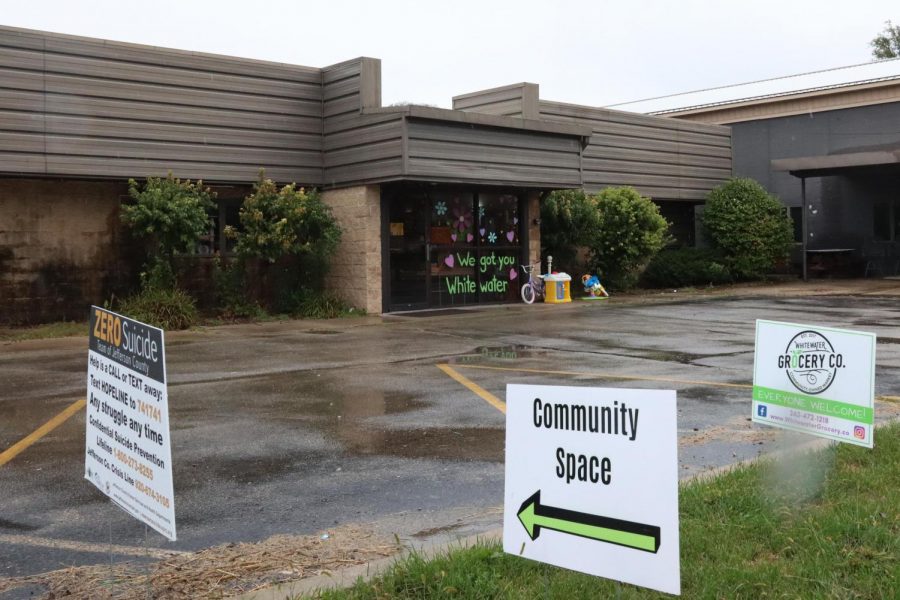Community space provides for all
Are you short on cash? Check out The Community Space.
Located at 834 E. Milwaukee Street in Whitewater, The Community Space features a Little Free Pantry and provides items such as food, clothing and furniture to people.
September 27, 2020
Nestled on the east side of Whitewater at 834 E. Milwaukee St., lies an organization that caters to all people. Regardless of background, you can go into The Community Space and grab a bag of essentials to get what you need. There is food, clothes, school supplies and more: all free of charge.
“What we’re trying to do is take stuff that’s already here in the community and hopefully keep it from going to the landfill. If we can help a young family with some free clothes and some free food so they can pay their rent, or so they can afford healthcare, that’s a win for me,” says Kristine Zaballos, co-founder and executive director.
Established in January of 2019, The Community Space, has flourished since its inception. Entirely donation driven, the organization focuses on putting the donated funds and food back into the community. Earlier this year, it received a donation and was able to purchase a walk-in cooler from one of the Subway sandwich shops in town. The cooler helped expand the quantity and variety of products the organization was able to store, and offer to the community.
The Community Space is able to get wholesale deals from other organizations such as Feeding America at a low rate and is able to put food on the shelves. It also goes out collecting donations during campus move-out days, asking for anything of use that students in the dorms might be throwing away.
The organization was inspired by other ideas similar to “The Little Free Pantry,” which located on the first floor of Drumlin Dining Hall on the University of Wisconsin-Whitewater campus.
“What I hope to have at the end of this, is kind of like a toolkit that another community can adopt,” says Zaballos. “Hopefully, they can avoid some of our mistakes, but then use a toolkit or template that they can apply to their local conditions.”














